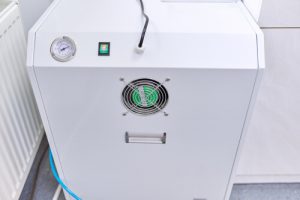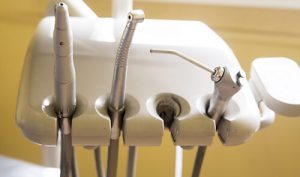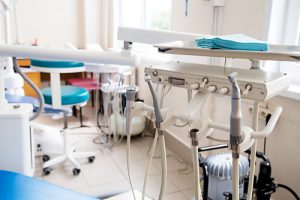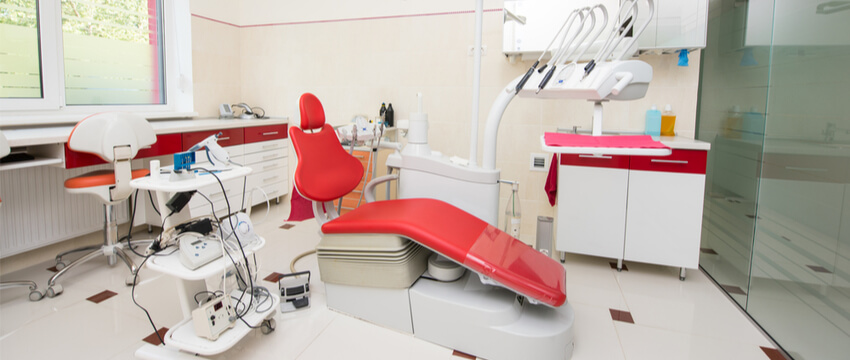One of the most important machines in a dental office would have to be the air compressor. Dentists utilise this to provide safe and comfortable services to their patients. Because every dental procedure requires a tool powered by the air compressor, choosing the best portable air compressors becomes a priority. Let us help you find out what characteristics the best air compressor must have to gain that distinction.
Best Air Compressor Factors
As the leading dental supply store in Australia, we, at Cattani Compressors, make sure that we guide our customers about the factors that they need to look at so they can choose the most suitable for their needs and requirements. 
-
Power
Most dental offices require compressors to operate between one and five horsepower to efficiently run their equipment
-
Pressure
Each dental tool necessitates a specific amount of pressure to run properly, and air compressors must provide enough pressure to safely operate all your tools simultaneously
-
Performance/Production
Make sure your compressor choice exceeds your practice’s required cubic feet per minute (CFM) or liters per minute (LPM) ratings to ensure it can easily handle your dental equipment and accommodate new additions as necessary. These three P’s dictate the capacity and characteristics of the dental compressor that you need for your clinic and practice. These considerations govern selecting the compressor with the right physical attributes for your practice’s needs.
Factors to Note when Choosing your Dental Air Compressor
Dentists use air compressors to support and activate appliances that need a high volume of air in constant supply. You can use air compressors together with other tools within the home, but for work settings such as your dentist’s clinic, getting the best one surely is a must for your procedure’s safety as well as your dental well-being. Here are some of the key factors dentists look for when getting an essential piece of equipment like the air compressor.
Choosing between Portable Air Compressor and Piston Air Compressor
There are two types of air compressors based on their sizes and composition. Piston air compressors have a motor that promotes air pressure during depletion. The more you use it, the more the air pressure increases. You’ll need to factor in space for a tank which will keep it in one place. Piston compressors require heavy-duty maintenance and are, therefore, best suited for commercial use. The portable compressors don’t have tanks; they are, therefore, easy to move about. It does not matter where you want to use it; you can simply carry it to the location. The portable ones will work well for light use, especially within the household. You get continuous air pressure without too much effort.
Considering the CFM Measurement
 You should consider both the size of your practice as well as the desired size of the air compressor in relation to it. Most dental air compressors measure output in one of two ways:
You should consider both the size of your practice as well as the desired size of the air compressor in relation to it. Most dental air compressors measure output in one of two ways:
- Cubic feet per minute (CFM)
- Liters per minute (LPM)
Dental chairs typically require 50 LPM or 2 CFM of air per chair. Additionally, you should account for the number of personnel who regularly use your equipment, as too much simultaneous use could strain a system that’s not prepared for it.
Requiring the Use of Oil
Most dental environments benefit from using oil-free compressors. Oil-based compressors risk contaminating surrounding fluids, which could imperil patient health. Oil-free air compressors also require less maintenance and upkeep because they work with less volatile substances. Oil-lubricated air compressors tend to be quieter and can last longer than other models, making them seem like a top choice for a dental office, but that may not be the case. The main reason many dentists choose an oil-free compressor is that they have a lower risk of contaminating the compressed air with lubricant. These units also tend to be lighter, allowing them to be placed in a wider range of areas, while still creating as much airflow and pressure as many oil-lubricated models. Removing the risk of contaminating the air is the biggest win and makes the most sense because it can protect the health and safety of your patients, staff, and those in your office’s waiting area. While you will need to perform maintenance slightly more often, the health and safety concerns significantly outweigh any benefit you’d see from using the heavier, lubricated models.
Considering the Power Requirements
Most compressors rate power output either in kilowatts (kW) or horsepower (HP). 1 kW equals 1.34 HP. This power range governs a compressor’s ability to pump air. Dental air compressors come in a range of power ratings, but for most dental offices, compressors with 1–5 HP (between 0.75–3.7 kW) get the job done.
Knowing your Size Preference
 When looking at air compressor options, you need to be clear about what your needs are. Will you use it in one location or will you need to move it from one place to another? If the former, you can set it in one place, and purchase long cords which will give you a larger degree of movement. The shape of the tank will also determine how portable the compressor will be. Bulky gallon air compressor tanks will be hard to move around. You’ll also need more space when using and storing the machine. The tank size of the best air compressors will also matter, just like a gallon tank or a big 6 gallon tank. and once again it comes down to the use you have in mind for the compressor. Heavy-duty jobs will require bigger tanks, which will allow the air compressor to run for a longer time.
When looking at air compressor options, you need to be clear about what your needs are. Will you use it in one location or will you need to move it from one place to another? If the former, you can set it in one place, and purchase long cords which will give you a larger degree of movement. The shape of the tank will also determine how portable the compressor will be. Bulky gallon air compressor tanks will be hard to move around. You’ll also need more space when using and storing the machine. The tank size of the best air compressors will also matter, just like a gallon tank or a big 6 gallon tank. and once again it comes down to the use you have in mind for the compressor. Heavy-duty jobs will require bigger tanks, which will allow the air compressor to run for a longer time.
Managing the noise
If you are working with an oil-free air compressor, you may also face louder compression cycles. The good news is that most dental offices are using compressors small enough to be fitted with filter silencers, significantly reducing the noise your unit will make. Silencers can make sure the environment stays enjoyable for your patients and staff, so they can continue to operate without any safety equipment and so that you’re not creating an environment with any long-term risks related to your use of compressed air. An oil-less air compressor also tends to generate a higher heat output and has a greater possibility of creating condensation, so it needs plenty of room to vent and have air circulate around it. This is typically good news because it means there is usually enough space to install silencers and covers which can reduce noise while ensuring the proper breathing room for a full-functioning air compressor.
Choosing your Dental Compressor
Like other dental tools you use, not all air compressors are created equal. There are a variety of capacity and power options, plus materials and layout that can make or break a system for your dental office. We’ve looked at some of the chief points for selecting the right air compressor and what requirements you should be aware of when you make your choice. Let Cattani Compressors guide you when choosing a quiet air compressor for your dental clinic that still provides the right level of power, pressure, and performance that your practice needs. If you have any questions, don’t hesitate to get in touch with us at (02) 8880 9257 and speak with one of our helpful representatives. We are delighted to be your partner in delivering safe and effective medical products that improve patient outcomes. You may also learn more about our product by browsing through our catalogue.



